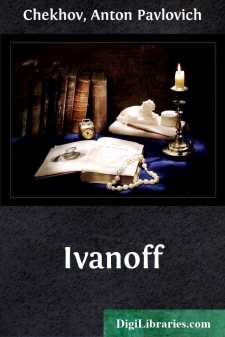Categories
- Antiques & Collectibles 13
- Architecture 36
- Art 48
- Bibles 22
- Biography & Autobiography 816
- Body, Mind & Spirit 145
- Business & Economics 28
- Children's Books 17
- Children's Fiction 14
- Computers 4
- Cooking 94
- Crafts & Hobbies 4
- Drama 346
- Education 58
- Family & Relationships 59
- Fiction 11834
- Foreign Language Study 3
- Games 19
- Gardening 17
- Health & Fitness 34
- History 1378
- House & Home 1
- Humor 147
- Juvenile Fiction 1873
- Juvenile Nonfiction 202
- Language Arts & Disciplines 89
- Law 16
- Literary Collections 686
- Literary Criticism 179
- Mathematics 13
- Medical 41
- Music 40
- Nature 179
- Non-Classifiable 1768
- Performing Arts 7
- Periodicals 1453
- Philosophy 66
- Photography 2
- Poetry 897
- Political Science 203
- Psychology 45
- Reference 154
- Religion 516
- Science 126
- Self-Help 85
- Social Science 82
- Sports & Recreation 34
- Study Aids 3
- Technology & Engineering 59
- Transportation 23
- Travel 463
- True Crime 29
Our website is made possible by displaying online advertisements to our visitors.
Please consider supporting us by disabling your ad blocker.
The Sea-Gull
Categories:
Description:
Excerpt
ACT I
The scene is laid in the park on SORIN'S estate. A broad avenue of trees leads away from the audience toward a lake which lies lost in the depths of the park. The avenue is obstructed by a rough stage, temporarily erected for the performance of amateur theatricals, and which screens the lake from view. There is a dense growth of bushes to the left and right of the stage. A few chairs and a little table are placed in front of the stage. The sun has just set. JACOB and some other workmen are heard hammering and coughing on the stage behind the lowered curtain.
MASHA and MEDVIEDENKO come in from the left, returning from a walk.
MEDVIEDENKO. Why do you always wear mourning?
MASHA. I dress in black to match my life. I am unhappy.
MEDVIEDENKO. Why should you be unhappy? [Thinking it over] I don't understand it. You are healthy, and though your father is not rich, he has a good competency. My life is far harder than yours. I only have twenty-three roubles a month to live on, but I don't wear mourning. [They sit down].
MASHA. Happiness does not depend on riches; poor men are often happy.
MEDVIEDENKO. In theory, yes, but not in reality. Take my case, for instance; my mother, my two sisters, my little brother and I must all live somehow on my salary of twenty-three roubles a month. We have to eat and drink, I take it. You wouldn't have us go without tea and sugar, would you? Or tobacco? Answer me that, if you can.
MASHA. [Looking in the direction of the stage] The play will soon begin.
MEDVIEDENKO. Yes, Nina Zarietchnaya is going to act in Treplieff's play. They love one another, and their two souls will unite to-night in the effort to interpret the same idea by different means. There is no ground on which your soul and mine can meet. I love you. Too restless and sad to stay at home, I tramp here every day, six miles and back, to be met only by your indifference. I am poor, my family is large, you can have no inducement to marry a man who cannot even find sufficient food for his own mouth.
MASHA. It is not that. [She takes snuff] I am touched by your affection, but I cannot return it, that is all. [She offers him the snuff-box] Will you take some?
MEDVIEDENKO. No, thank you. [A pause.]
MASHA. The air is sultry; a storm is brewing for to-night. You do nothing but moralise or else talk about money. To you, poverty is the greatest misfortune that can befall a man, but I think it is a thousand times easier to go begging in rags than to—You wouldn't understand that, though.
SORIN leaning on a cane, and TREPLIEFF come in.
SORIN. For some reason, my boy, country life doesn't suit me, and I am sure I shall never get used to it. Last night I went to bed at ten and woke at nine this morning, feeling as if, from oversleep, my brain had stuck to my skull. [Laughing] And yet I accidentally dropped off to sleep again after dinner, and feel utterly done up at this moment. It is like a nightmare.
TREPLIEFF. There is no doubt that you should live in town. [He catches sight of MASHA and MEDVIEDENKO] You shall be called when the play begins, my friends, but you must not stay here now....












